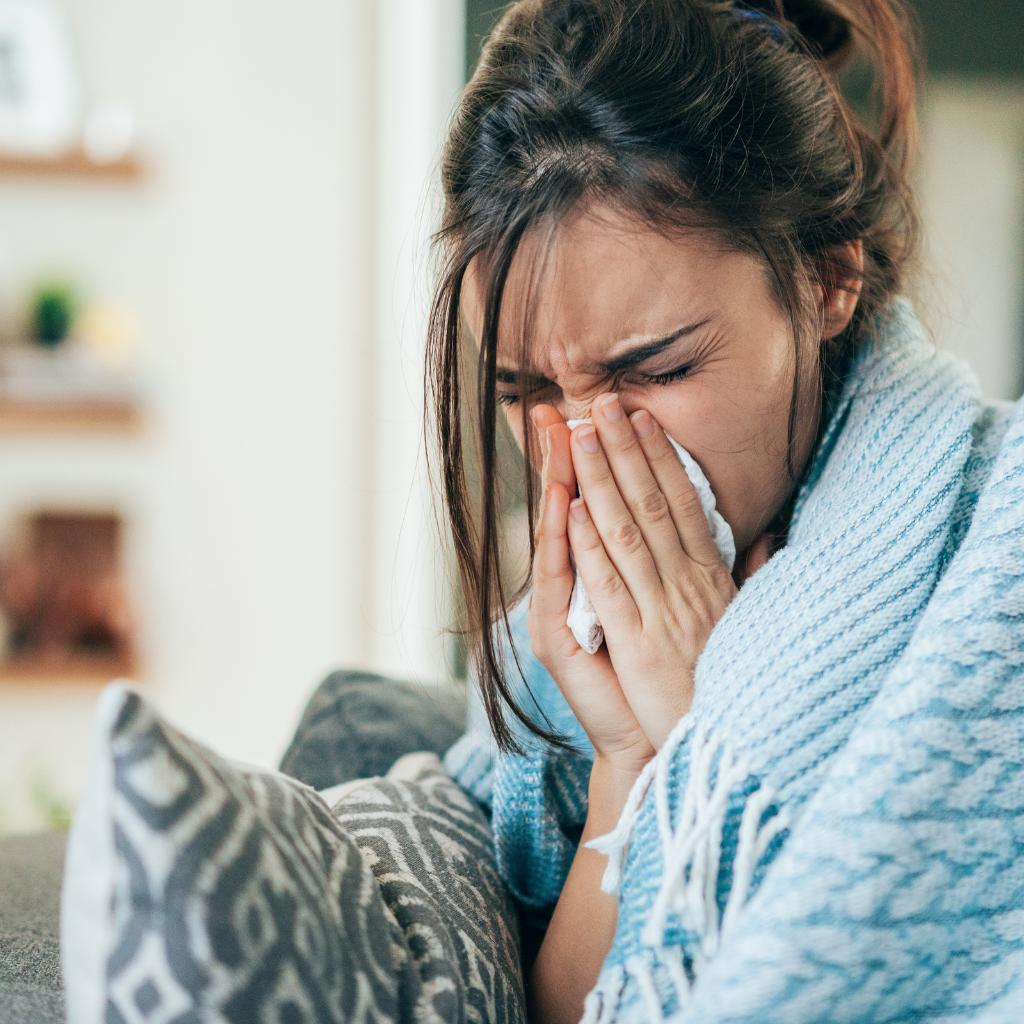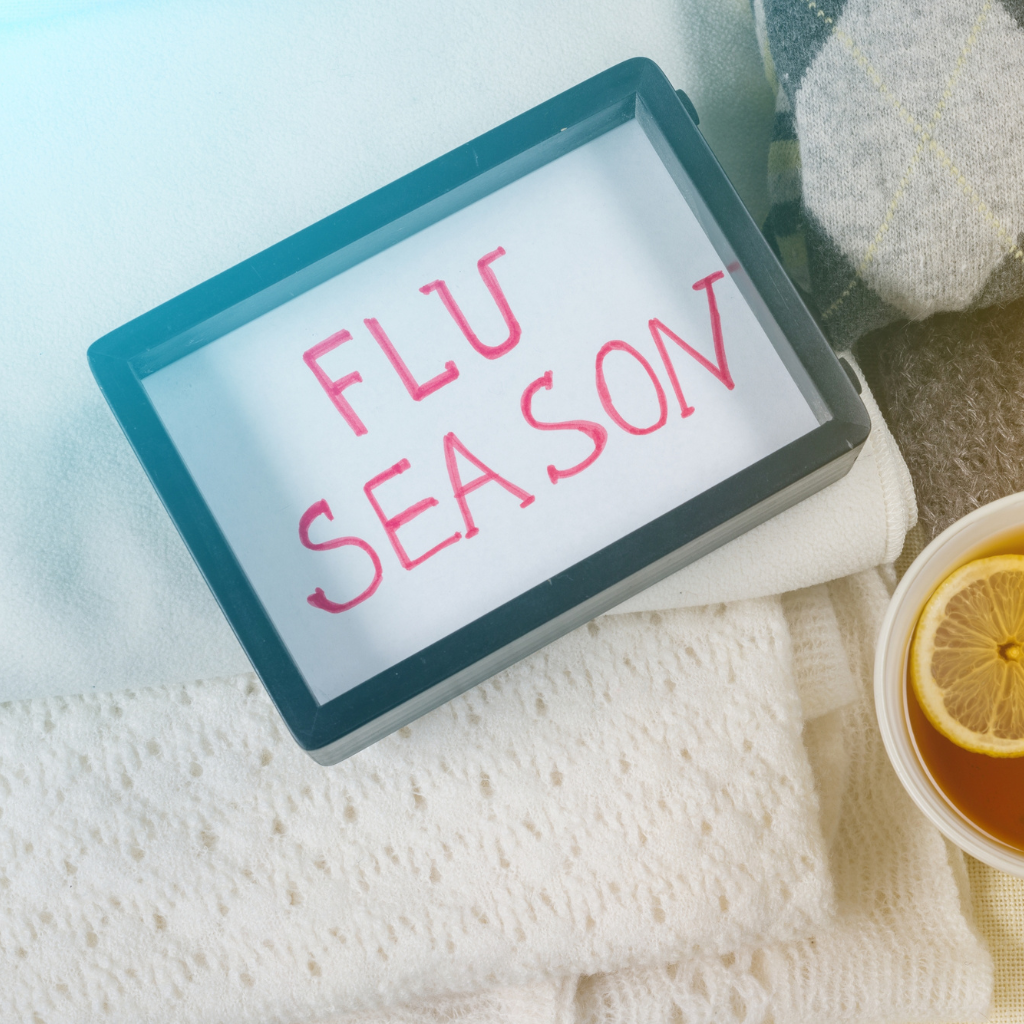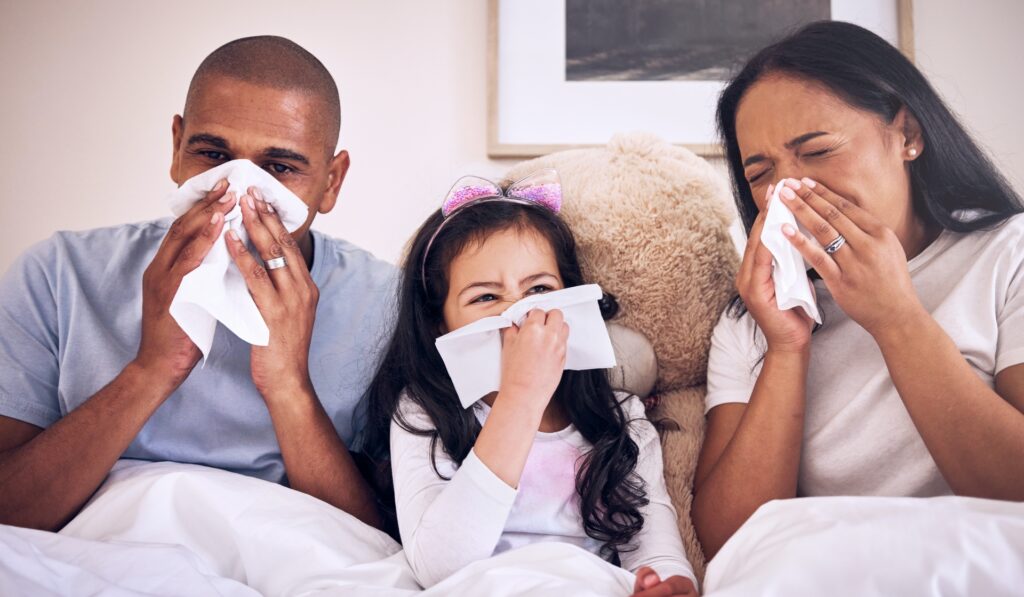Tri Health Family Wellness Center
Flu season is once again upon us, and it’s important to take necessary precautions to stay healthy. While the flu may seem like a minor illness, it can have serious complications, especially for those with underlying health conditions.
In recent years, the flu has caused an estimated 12,000 to 61,000 deaths in the United States alone. With the recent emergence of new strains of the flu virus, including the H1N1 and H3N2 strains, it’s more important than ever to understand how the flu works and what you can do to prevent it.
In this article, we’ll explore the ins and outs of flu season, from how the flu spreads to what you can do to prevent it. We’ll also dive into the latest research on boosting immunity and dealing with the flu if you do get sick. So, let’s get started on our journey to a healthy flu season!
What Causes The Flu?
The flu, short for influenza, is caused by a virus, which are small, enveloped RNA viruses. There are three main types of influenza viruses that cause illness in humans: A, B, and C. Influenza A viruses are the most common cause of seasonal flu epidemics, while influenza B viruses cause milder illness and are more common in children. Influenza C viruses cause even milder illness and are rarely seen in humans. This is why it is important to get a flu vaccine every year, as the vaccine is designed to protect against the most common strains of flu viruses that are circulating at the time.
Symptoms Of The Flu

The symptoms of the flu can vary from person to person but typically include fever, cough, sore throat, runny or stuffy nose, body aches, headaches, chills, and fatigue. In some cases, people may also experience vomiting and diarrhea, although this is more common in children than adults.
- Fever
- Cough
- Sore throat
- Runny or stuffy nose
- Body aches
- Headaches
- Chills
- Fatigue
How To Prevent And Treat The Flu?
Winter is here, and with it comes the dreaded flu season. The flu is a highly contagious viral infection that can cause fever, cough, sore throat, body aches, and fatigue. While there is no cure for the flu, there are several ways to prevent it and manage its symptoms.
Prevention Methods
The best way to avoid getting the flu is to take preventive measures. Here are some effective ways to prevent the flu:
1. Get a flu vaccine: Getting a flu shot is the most effective way to prevent the flu. The vaccine works by stimulating your body’s immune system to produce antibodies that can fight off the flu virus.
2. Wash hands regularly: Wash your hands with soap and water for at least 20 seconds, especially before eating or touching your face. This helps to remove germs from your hands and prevent the spread of the flu virus.
3. Avoid touching face and mouth: The flu virus can enter your body through your eyes, nose, or mouth. Avoid touching your face or mouth to prevent the spread of germs.
4. Stay home when sick: If you have the flu, stay home and avoid contact with others to prevent the spread of the virus.
5. Cover coughs and sneezes: When you cough or sneeze, your body expels tiny droplets of saliva or mucus that can contain germs. These droplets can travel up to six feet and infect others who inhale them. By covering your mouth and nose with a tissue when you cough or sneeze, you can help to prevent the spread of germs and keep your loved ones healthy.
Boosting Immunity
A strong immune system can help your body fight off the flu virus. Here are some ways to boost your immunity:
1. Eating a balanced diet: A healthy diet that includes fruits, vegetables, whole grains, and lean proteins can help boost your immune system. Foods high in vitamin C, such as citrus fruits, can also be especially beneficial.
2. Getting enough sleep: Lack of sleep can weaken your immune system, making you more susceptible to the flu virus. Aim for 7-8 hours of sleep each night.
3. Exercising regularly: Exercise can boost your immune system and help your body fight off infections. Aim for at least 30 minutes of moderate exercise per day.
4. Taking vitamins and supplements: Vitamin C, vitamin D, and zinc are all important for a healthy immune system. Consider taking some supplements if you are not getting enough of these nutrients from your natural food source.
Additional Tips For Flu Prevention

Along with the essential strategies mentioned above, here are some additional secret weapons to aid you in your flu-free adventure:
- Wear a mask in crowded places, especially those with poor ventilation.
- Get plenty of rest during flu season, as fatigue weakens your immune system.
- Stay up-to-date on flu information from reliable sources, such as the CDC, to stay informed about flu strains and vaccine recommendations.
How To Deal With The Flu?
If you do get the flu, here are some ways to manage your symptoms:
1. When to see a doctor: If you have flu symptoms and are at high risk for complications, such as young children, pregnant women, or people with chronic medical conditions, see a doctor as soon as possible.
2. Over-the-counter medications for symptom relief: Over-the-counter medications such as acetaminophen, ibuprofen, and decongestants can help relieve symptoms such as fever, body aches, and congestion. Always follow the recommended dosage by your physician.
3. Home remedies for symptom relief: Drinking plenty of fluids, resting, and using a humidifier can help relieve symptoms of the flu and speed up recovery. Chicken soup and honey may also be helpful for soothing a sore throat.
Conclusion

In conclusion, the flu is a highly contagious viral infection that can cause serious health complications. However, by taking preventive measures, boosting your immunity, and managing your symptoms, you can reduce your risk of getting the flu and recover faster if you do get sick. Stay healthy and stay safe this flu season!
Tri-Health Family Wellness Center: Your Trusted Ally In Flu Prevention
At Tri-Health Family Wellness Center, we are dedicated to empowering you to become the hero of your own flu-free adventure. Our team of experienced physicians and healthcare providers is committed to providing you with comprehensive flu prevention services, including:
- Flu vaccinations for patients of all ages, including high-risk individuals
- Personalized flu prevention strategies based on your individual needs and risk factors
- Up-to-date information on flu strains, vaccine recommendations, and treatment options
We are here to answer any questions you may have about the flu and to help you protect yourself and your loved ones from getting sick. Contact us today to schedule your flu vaccination and go on a flu-free journey this flu season.





